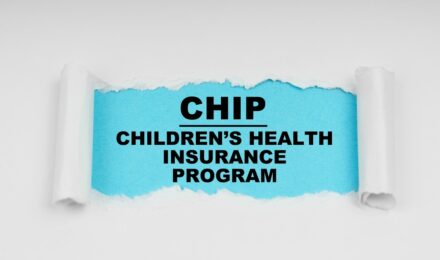Contents
Navigating the complex landscape of healthcare costs can be daunting, especially for Medicare beneficiaries. While Medicare provides essential coverage, out-of-pocket expenses can quickly add up. Fortunately, Medicare Savings Programs (MSPs) offer a lifeline for eligible individuals, helping to alleviate financial burdens. These programs, often overlooked, provide significant savings on premiums, deductibles, and copayments.
Medicare Savings Programs
MSPs are designed for low-income Medicare beneficiaries, providing financial assistance to ensure access to necessary healthcare services. Eligibility varies by state and income level, but generally, individuals with limited income and resources qualify. MSPs categorize beneficiaries into four main groups: Qualified Medicare Beneficiary (QMB), Specified Low-Income Medicare Beneficiary (SLMB), Qualifying Individual (QI), and Qualified Disabled and Working Individual (QDWI). Each program offers distinct benefits, including premium payment assistance, reduced copayments, and elimination of deductibles.
The Qualified Medicare Beneficiary program, for instance, covers Medicare Part A and Part B premiums, deductibles, and copayments for eligible individuals. This comprehensive coverage enables QMB recipients to access essential healthcare services without incurring substantial out-of-pocket costs. Similarly, the Specified Low-Income Medicare Beneficiary program assists with Part B premiums, ensuring beneficiaries can receive necessary medical care without financial hardship.
MSPs Qualification Requirements
To qualify for MSPs, individuals must meet specific income and resource requirements. Income limits vary by state, but generally, individuals with incomes below 135% of the federal poverty level are eligible. Resources, such as savings and investments, are also considered. Applications for MSPs are typically submitted through state Medicaid offices or local social services departments. [1]
One of the most significant advantages of MSPs is their potential to reduce Medicare costs substantially. By eliminating or reducing premiums, deductibles, and copayments, beneficiaries can save hundreds or even thousands of dollars annually. For example, QMB recipients can save up to $1,600 per year on Medicare Part B premiums alone. These savings can be redirected towards essential living expenses, enhancing overall financial stability.
Beyond cost savings, MSPs also offer peace of mind. Beneficiaries can rest assured that they have access to necessary healthcare services without worrying about unaffordable expenses. This security is particularly vital for individuals with chronic conditions or ongoing medical needs.
Despite their benefits, MSPs remain underutilized. Many eligible individuals are unaware of these programs or fail to apply due to complex eligibility requirements. Educating healthcare providers, social workers, and community organizations about MSPs can help bridge this knowledge gap.
State-specific MSP programs also exist, offering additional benefits and eligibility pathways. For instance, some states provide full Medicaid benefits to MSP recipients, while others offer supplemental coverage for dental, vision, or hearing services. Familiarizing oneself with state-specific programs can uncover hidden gems for reducing healthcare costs.
How To Get Help When Applying for MSPs
The application process for Medicare Savings Programs can be facilitated with the help of various organizations [2]. State Health Insurance Assistance Programs (SHIPs), Aging and Disability Resource Centers (ADRCs), and Area Agencies on Aging (AAAs) offer free counseling and guidance to navigate the application process. Additionally, many hospitals and healthcare providers have patient advocates or financial counselors who can assist with MSP applications. These resources can help streamline the process, ensuring eligible individuals receive the benefits they deserve.
Technology can play a vital role in enhancing Medicare Savings Programs’ accessibility and efficiency. Online application portals, such as the Centers for Medicare and Medicaid Services’ (CMS) Beneficiary Portal, streamline the enrollment process and reduce paperwork. Additionally, electronic data sharing between state agencies, healthcare providers, and the Social Security Administration can facilitate eligibility verification and reduce application processing times. Leveraging technology in this way can improve the overall user experience, reduce administrative costs, and ensure timely delivery of benefits.
Research initiatives are also underway to assess the impact of Medicare Savings Programs on health outcomes and healthcare utilization. Studies have shown that MSP participants experience improved health outcomes, reduced hospitalization rates, and increased adherence to medication regimens [3]. Furthermore, researchers are exploring the potential for MSPs to address social determinants of health, such as food insecurity and housing instability, by integrating benefits with community-based services. By demonstrating the effectiveness of MSPs in improving health equity and reducing healthcare disparities, policymakers can inform future program expansions and optimizations, ultimately enhancing the well-being of vulnerable populations.
Impact of Medicare Savings Programs
To further enhance the effectiveness of Medicare Savings Programs, policymakers and healthcare stakeholders are exploring innovative solutions. Some proposals aim to expand MSP eligibility to more individuals, particularly those with moderate incomes. Others focus on simplifying the application process, reducing administrative burdens, and improving coordination between state and federal agencies. Furthermore, initiatives to increase awareness among healthcare providers and community organizations are underway, recognizing the critical role these stakeholders play in connecting eligible individuals with MSP benefits. By building on the existing foundation of Medicare Savings Programs, we can create a more comprehensive and supportive healthcare system for vulnerable populations.
In conclusion, Medicare Savings Programs are invaluable resources for low-income Medicare beneficiaries. By providing financial assistance and reducing out-of-pocket costs, MSPs ensure access to essential healthcare services. Eligible individuals should explore these programs to unlock significant savings and enhance their financial well-being. As healthcare costs continue to rise, MSPs serve as a vital safety net, empowering beneficiaries to prioritize their health without sacrificing financial stability.
Healthcare professionals, advocates, and community leaders must promote awareness about MSPs, ensuring eligible individuals are informed and empowered to take advantage of these valuable programs. By doing so, we can alleviate financial burdens, improve health outcomes, and foster a more equitable healthcare system for all.
Unlocking the potential of Medicare Savings Programs requires proactive outreach and education. By spreading awareness and streamlining eligibility processes, we can connect more individuals with these life-changing benefits. As we strive for a more comprehensive and compassionate healthcare system, MSPs stand as a shining example of effective support for vulnerable populations.
Sources
- Applying for a Medicare Savings Program – Medicare Interactive
- Medicare Savings Programs | Medicare
- Advancing Health Equity Through Value-Based Care: CMS Innovation Center Update | Health Affairs
Contents
Navigating the complex landscape of healthcare costs can be daunting, especially for Medicare beneficiaries. While Medicare provides essential coverage, out-of-pocket expenses can quickly add up. Fortunately, Medicare Savings Programs (MSPs) offer a lifeline for eligible individuals, helping to alleviate financial burdens. These programs, often overlooked, provide significant savings on premiums, deductibles, and copayments.
Medicare Savings Programs
MSPs are designed for low-income Medicare beneficiaries, providing financial assistance to ensure access to necessary healthcare services. Eligibility varies by state and income level, but generally, individuals with limited income and resources qualify. MSPs categorize beneficiaries into four main groups: Qualified Medicare Beneficiary (QMB), Specified Low-Income Medicare Beneficiary (SLMB), Qualifying Individual (QI), and Qualified Disabled and Working Individual (QDWI). Each program offers distinct benefits, including premium payment assistance, reduced copayments, and elimination of deductibles.
The Qualified Medicare Beneficiary program, for instance, covers Medicare Part A and Part B premiums, deductibles, and copayments for eligible individuals. This comprehensive coverage enables QMB recipients to access essential healthcare services without incurring substantial out-of-pocket costs. Similarly, the Specified Low-Income Medicare Beneficiary program assists with Part B premiums, ensuring beneficiaries can receive necessary medical care without financial hardship.
MSPs Qualification Requirements
To qualify for MSPs, individuals must meet specific income and resource requirements. Income limits vary by state, but generally, individuals with incomes below 135% of the federal poverty level are eligible. Resources, such as savings and investments, are also considered. Applications for MSPs are typically submitted through state Medicaid offices or local social services departments. [1]
One of the most significant advantages of MSPs is their potential to reduce Medicare costs substantially. By eliminating or reducing premiums, deductibles, and copayments, beneficiaries can save hundreds or even thousands of dollars annually. For example, QMB recipients can save up to $1,600 per year on Medicare Part B premiums alone. These savings can be redirected towards essential living expenses, enhancing overall financial stability.
Beyond cost savings, MSPs also offer peace of mind. Beneficiaries can rest assured that they have access to necessary healthcare services without worrying about unaffordable expenses. This security is particularly vital for individuals with chronic conditions or ongoing medical needs.
Despite their benefits, MSPs remain underutilized. Many eligible individuals are unaware of these programs or fail to apply due to complex eligibility requirements. Educating healthcare providers, social workers, and community organizations about MSPs can help bridge this knowledge gap.
State-specific MSP programs also exist, offering additional benefits and eligibility pathways. For instance, some states provide full Medicaid benefits to MSP recipients, while others offer supplemental coverage for dental, vision, or hearing services. Familiarizing oneself with state-specific programs can uncover hidden gems for reducing healthcare costs.
How To Get Help When Applying for MSPs
The application process for Medicare Savings Programs can be facilitated with the help of various organizations [2]. State Health Insurance Assistance Programs (SHIPs), Aging and Disability Resource Centers (ADRCs), and Area Agencies on Aging (AAAs) offer free counseling and guidance to navigate the application process. Additionally, many hospitals and healthcare providers have patient advocates or financial counselors who can assist with MSP applications. These resources can help streamline the process, ensuring eligible individuals receive the benefits they deserve.
Technology can play a vital role in enhancing Medicare Savings Programs’ accessibility and efficiency. Online application portals, such as the Centers for Medicare and Medicaid Services’ (CMS) Beneficiary Portal, streamline the enrollment process and reduce paperwork. Additionally, electronic data sharing between state agencies, healthcare providers, and the Social Security Administration can facilitate eligibility verification and reduce application processing times. Leveraging technology in this way can improve the overall user experience, reduce administrative costs, and ensure timely delivery of benefits.
Research initiatives are also underway to assess the impact of Medicare Savings Programs on health outcomes and healthcare utilization. Studies have shown that MSP participants experience improved health outcomes, reduced hospitalization rates, and increased adherence to medication regimens [3]. Furthermore, researchers are exploring the potential for MSPs to address social determinants of health, such as food insecurity and housing instability, by integrating benefits with community-based services. By demonstrating the effectiveness of MSPs in improving health equity and reducing healthcare disparities, policymakers can inform future program expansions and optimizations, ultimately enhancing the well-being of vulnerable populations.
Impact of Medicare Savings Programs
To further enhance the effectiveness of Medicare Savings Programs, policymakers and healthcare stakeholders are exploring innovative solutions. Some proposals aim to expand MSP eligibility to more individuals, particularly those with moderate incomes. Others focus on simplifying the application process, reducing administrative burdens, and improving coordination between state and federal agencies. Furthermore, initiatives to increase awareness among healthcare providers and community organizations are underway, recognizing the critical role these stakeholders play in connecting eligible individuals with MSP benefits. By building on the existing foundation of Medicare Savings Programs, we can create a more comprehensive and supportive healthcare system for vulnerable populations.
In conclusion, Medicare Savings Programs are invaluable resources for low-income Medicare beneficiaries. By providing financial assistance and reducing out-of-pocket costs, MSPs ensure access to essential healthcare services. Eligible individuals should explore these programs to unlock significant savings and enhance their financial well-being. As healthcare costs continue to rise, MSPs serve as a vital safety net, empowering beneficiaries to prioritize their health without sacrificing financial stability.
Healthcare professionals, advocates, and community leaders must promote awareness about MSPs, ensuring eligible individuals are informed and empowered to take advantage of these valuable programs. By doing so, we can alleviate financial burdens, improve health outcomes, and foster a more equitable healthcare system for all.
Unlocking the potential of Medicare Savings Programs requires proactive outreach and education. By spreading awareness and streamlining eligibility processes, we can connect more individuals with these life-changing benefits. As we strive for a more comprehensive and compassionate healthcare system, MSPs stand as a shining example of effective support for vulnerable populations.






